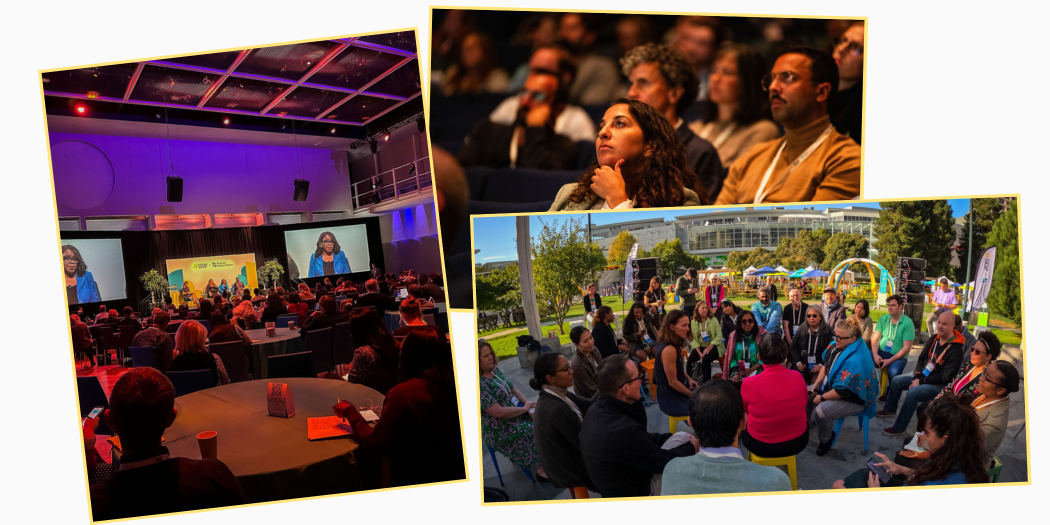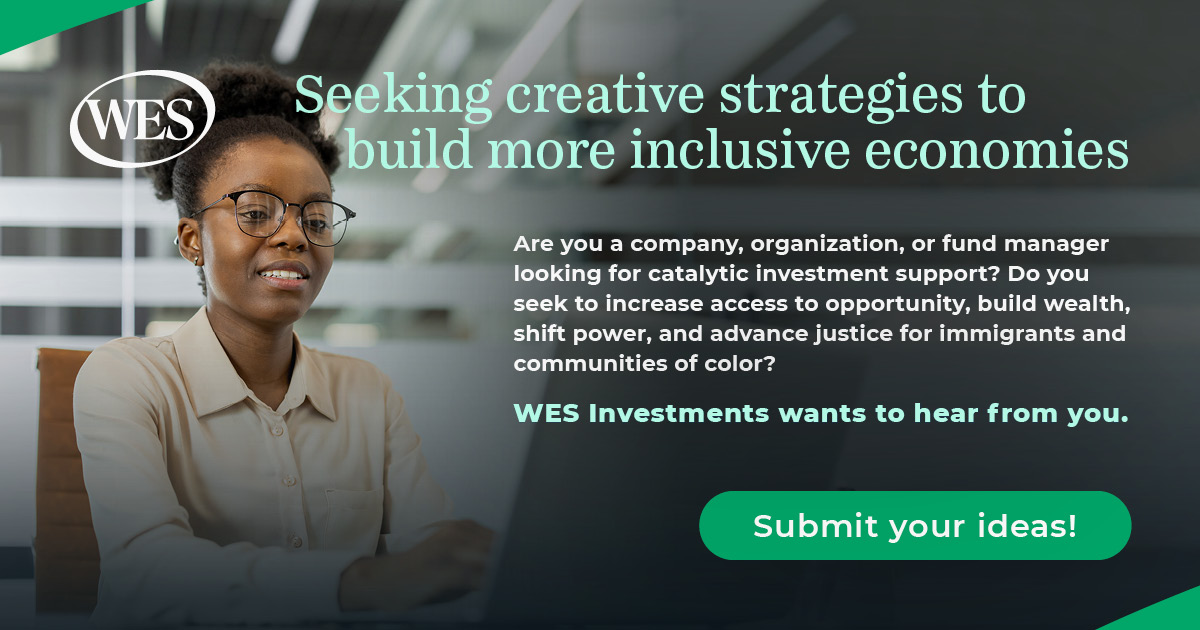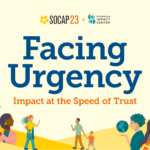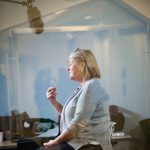Lasting Ideas and Thoughts Shared From SOCAP23 Stages
From October 23 to 25, 2023, thousands of global impact leaders, practitioners, investors, and entrepreneurs gathered in San Francisco at Yerba Buena Center for the Arts. With nine content tracks, three regional tracks, 90 sessions, hundreds of speakers, and thousands of attendees, we were continually inspired and challenged to lean into the urgency of the challenges facing all of us.
We’ve captured several of our SOCAP23 takeaways, highlighting some of the multitudes of outstanding moments and lessons in impact we hope to carry forward through the year. Get inspired and ready to take action with the thoughts we’ve collected from the SOCAP23 stages below. And don’t just take our word for it: You can find more insights from our community on our LinkedIn page and learn from what’s been shared under #SOCAP23.
SOCAP23 Takeaways: Day 1
What We Heard: We heard — loud and clear — speakers in every session call us to look deeper and take action. Here are some of the powerful words shared from the SOCAP23 stages on Day One:
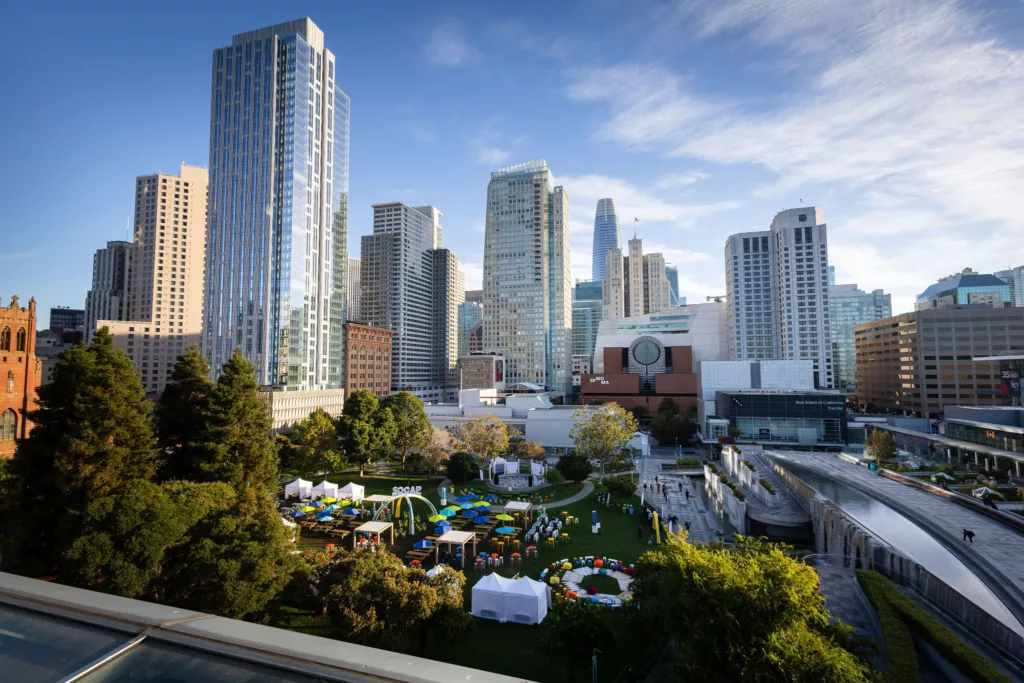
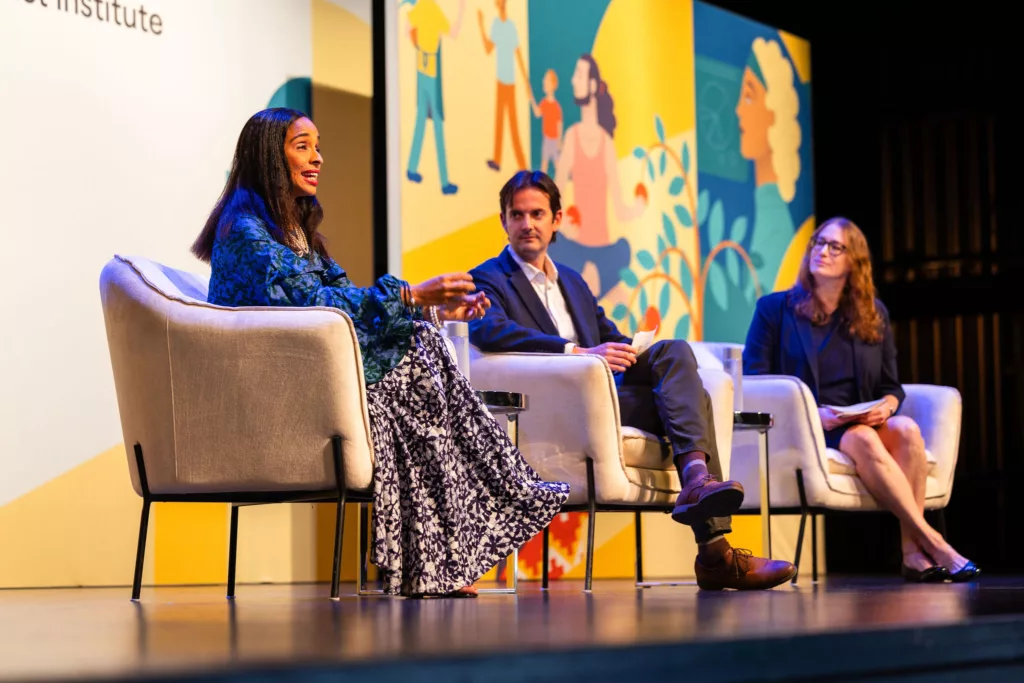
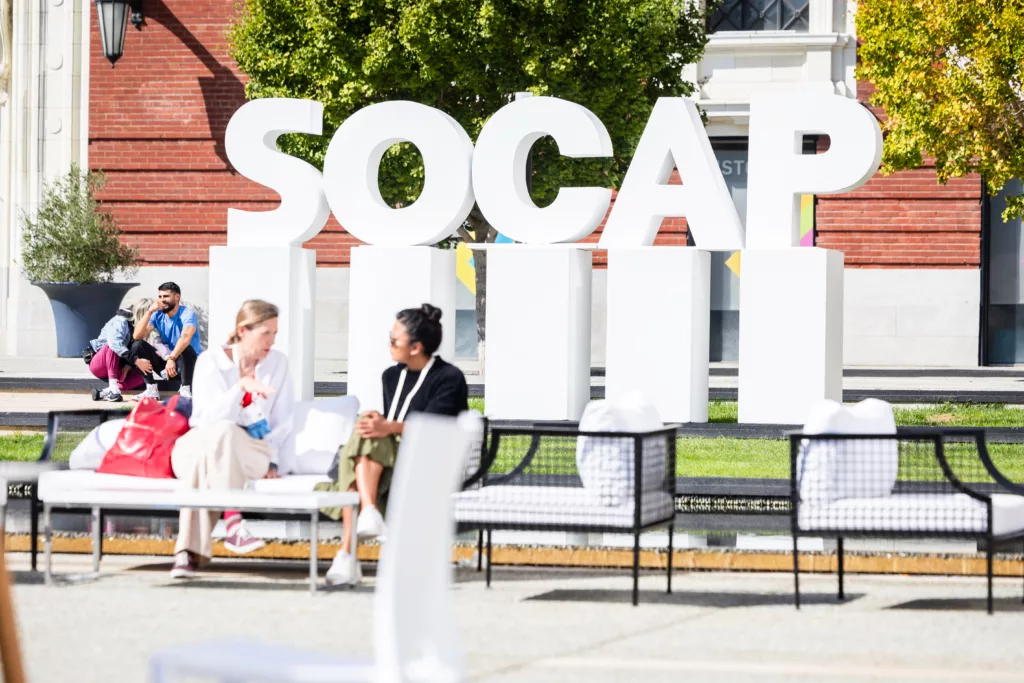
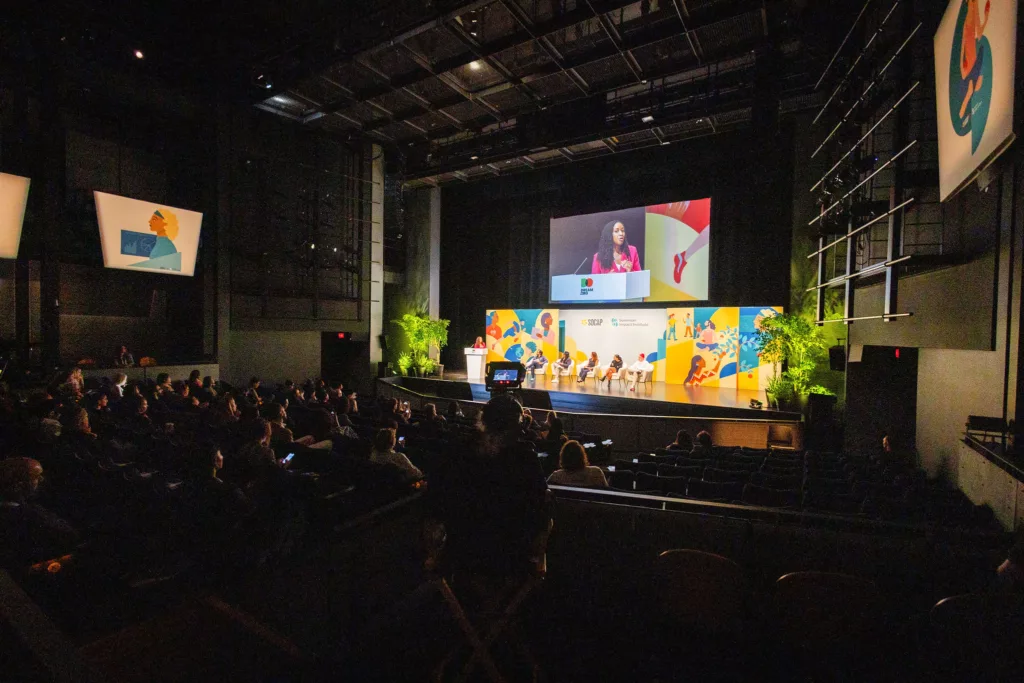
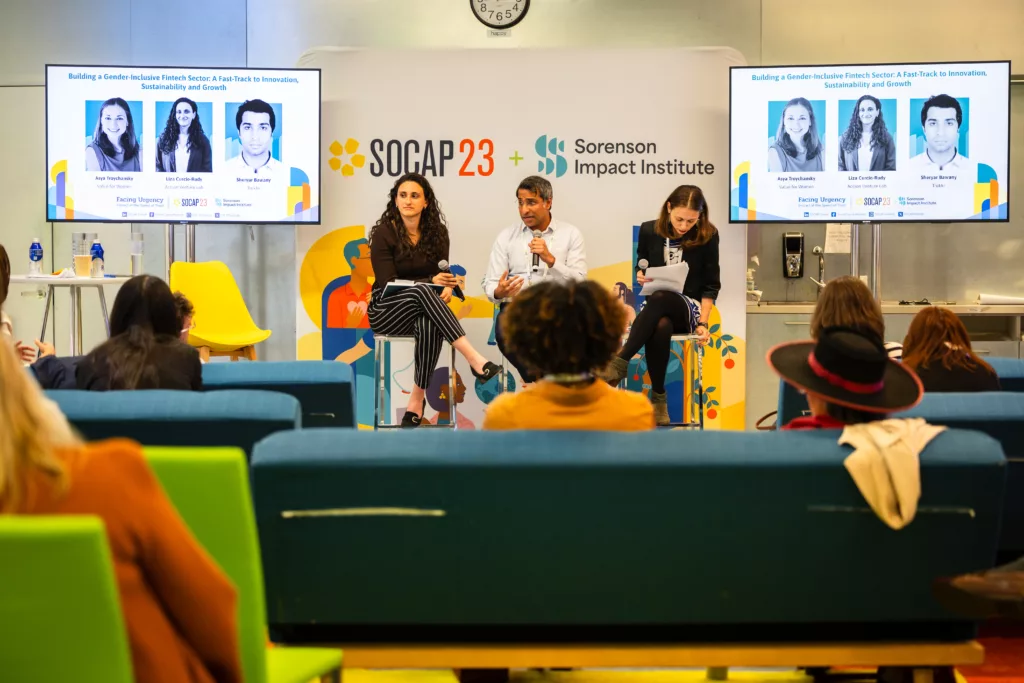
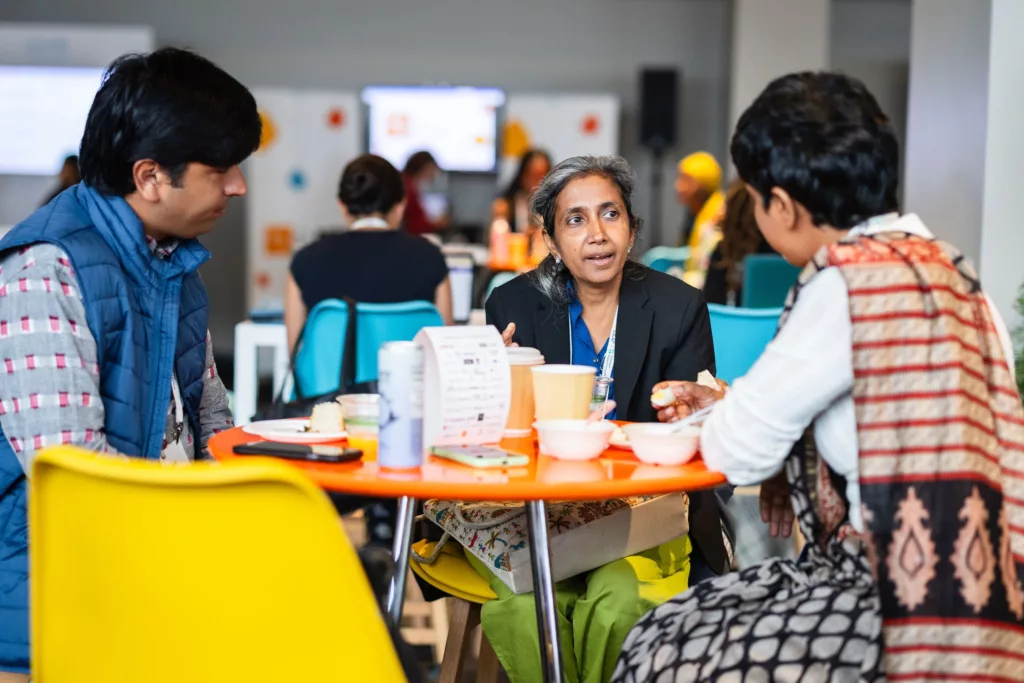
- “In Colombia, women live in an ongoing patriarchy. When they engage in business, they are always forced to consider what they need to sacrifice to be successful. That isn’t a concept men have to struggle with.” Patricia Saenz, EWA Capital
- “Many of us started by doing, now we are enabling. We started as entrepreneurs, now we are ecosystem builders. … We carry other people along. When we look at who and what to fund, we should fund ecosystem builders.” Ifeoma Malo, Clean Technology Incubation and Acceleration Foundation
- “There has never been a visible hand in the market, there has been a ton of human hands in the markets designing them to do exactly what they are doing today. “ Jeff Cyr, Raven Indigenous Capital Partners
- “When you put wellbeing at the center of who you are, you start to challenge the whole paradigm because how you care for yourself and one another starts to infuse not only the culture of the organization but also becomes the center of how you do work in the world.” Mallika Dutt, William and Flora Hewlett Foundation
- “Entrepreneurship is not just for younger people. Older people are betting on themselves and using that know-how in their business. The challenge is the capital and the training. They don’t have the capital to get started.” Felicia Brown, AARP
SOCAP23 Takeaways: Day 2
What We Heard: We heard so many calls to break down barriers and collaborate with those closest to the issues we are working to solve alongside the stories of the powerful impact that happens when we do just that. Here are some highlights of what was shared on our stages on Day Two:
- “There are what I call ‘way’ problems and ‘will’ problems. ‘Way’ problems are ones we don’t know the way to solve the problem yet. ‘Will’ problems are ones we know the way to solve but don’t have the will to execute the solution.” Katy Knight, Siegel Family Endowment
- “The future of fashion is sustainable, timeless, artisanal, and female.” Juana López Díaz, JUXTA NATION (Díaz is one of the entrepreneurs in the W.K. Kellogg Foundation Cohort. Don’t miss this lookbook of the W.K. Kellogg Foundation Entrepreneur Cohort.)
- “What we really need are solutions that are close to people. … It has to be socially, environmentally, and financially sustainable. If we want to attract capital, we need to have investable opportunities that are attractive and are not only profitable but take into consideration people.” Lia González, Incofin IM
- “It’s okay to fight for racial equity. It’s essential that we do that for all our sakes. Let’s make sure that we continue to push forward and have a racial justice agenda to talk about race in the way that we invest and also to make sure that we are building some of the legal resources that we’re going to need on the presumption that this will be a long fight … We have the resources within our communities to fix it.” Morgan Simon, Candide Group
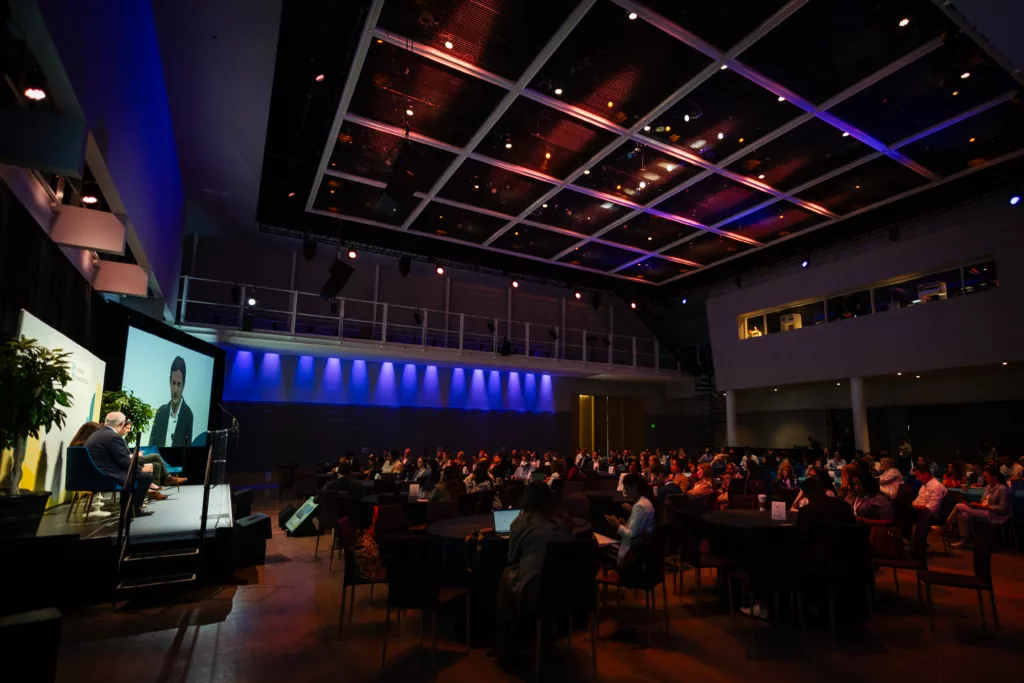
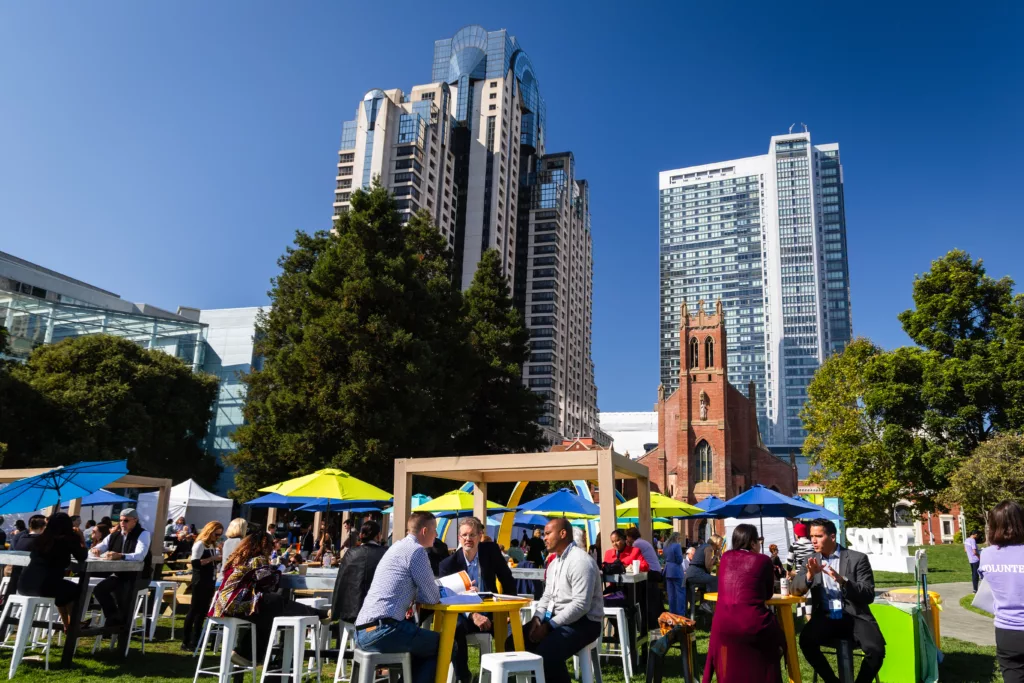
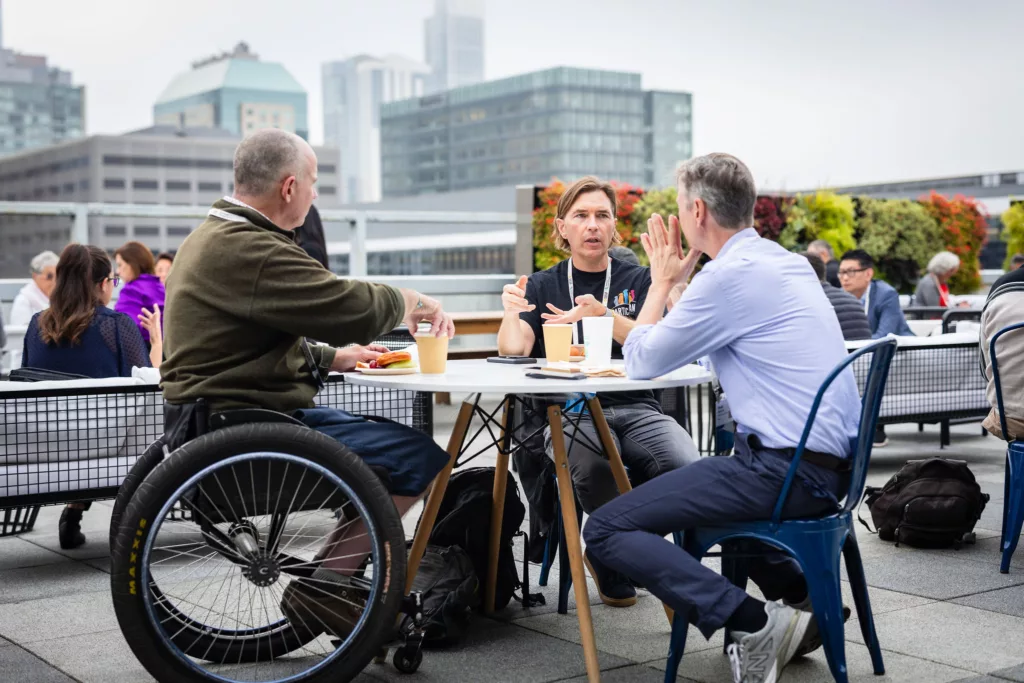
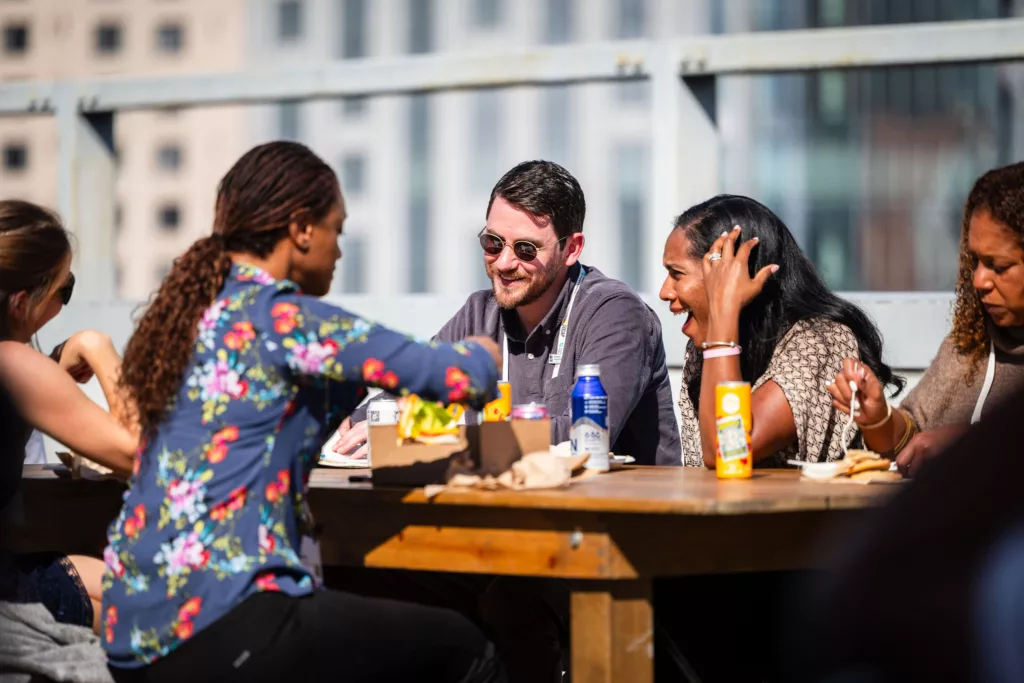
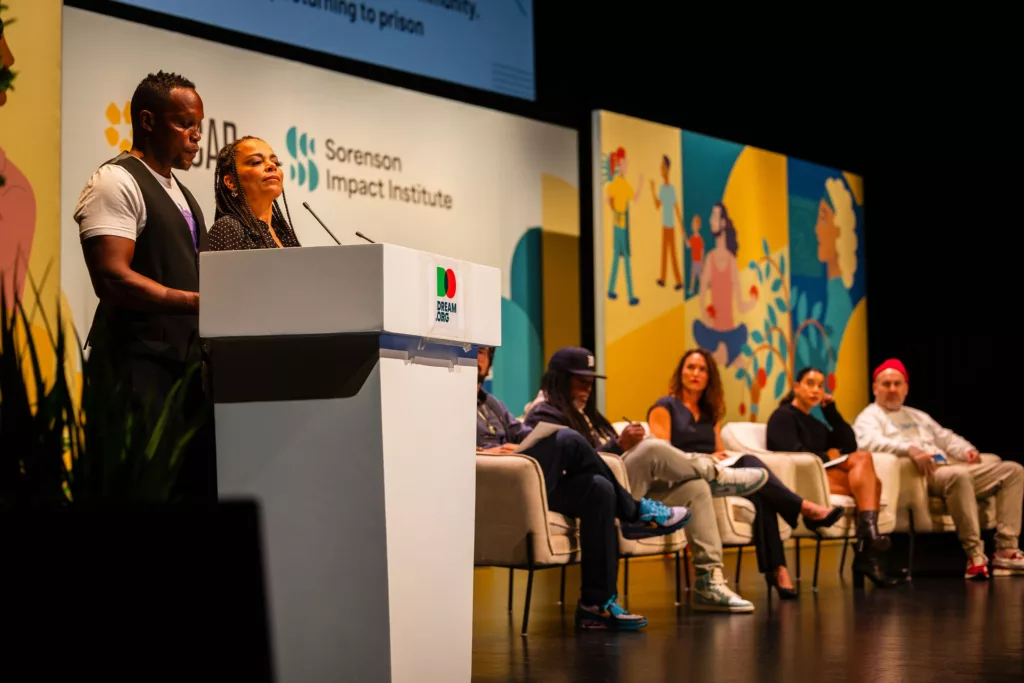
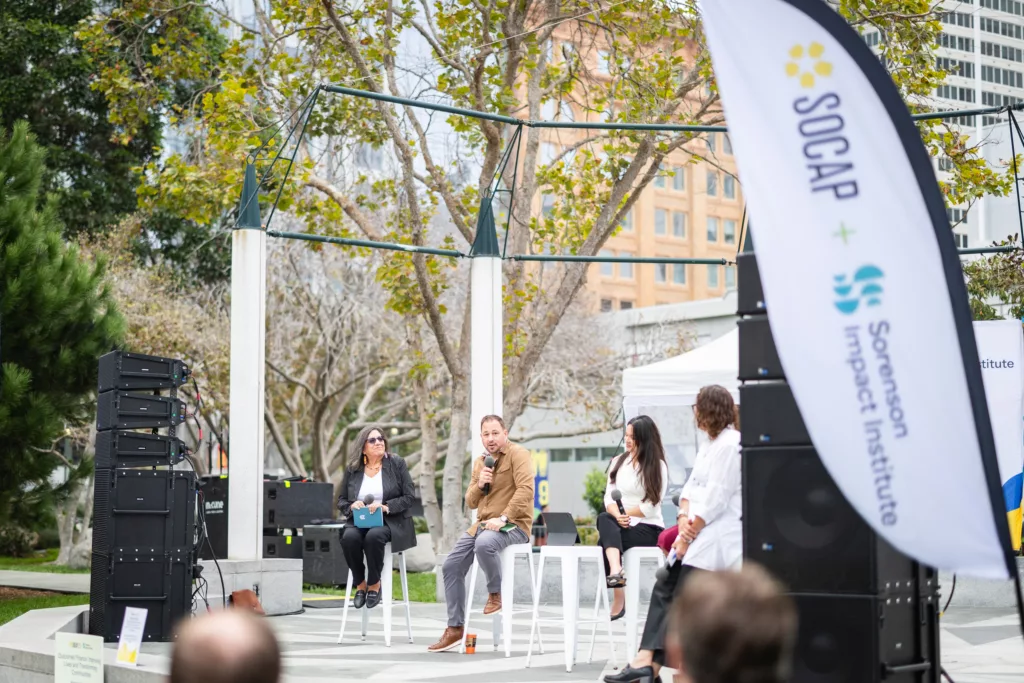
- “The beauty of SOCAP, of the people in this room, is that we collectively have the opportunity to partner with each other and work together in ways that are often not that easy, are not that natural for us. But what could we create? What could it look like if we were all working together and creating pathways for entrepreneurs?” Brigit Helms, Miller Center for Social Entrepreneurship
- “If we could harness the entrepreneurial potential of Africa’s youth, we might be able to change the reality of it being the richest continent in the world with the poorest people. … There are global implications to African innovation.” Okendo Lewis-Gayle, Harambeans
- “People are more important than the business plan. Entrepreneurs produce the impact that we all aim to achieve.” Scott Murphy, Advantage Capital
- “There have been minimal efforts to establish real ties with the very deep research and activist communities that have been working on data ownership rights and related issues for a long time. As venture and tech start to wake up to these issues, there’s a lot to be learned from folks who have already been working on these issues in other domains.” Zoe Weinberg, ex/ante
SOCAP23 Takeaways: Day 3
What We Heard: The call for collaboration on many levels was issued from our stages throughout Day Three. Here are some of the insightful things we heard on Wednesday:
- “It’s the connection we need … so we convene to connect with others as human beings. You can become friends, and then you can do business. We connect with each other as humans who want to see a better world.” — Carolina Puerta, New Ventures, Latin American Impact Investing Forum
- “I want to challenge everyone here to think of an initiative, a key relationship, or an opportunity you learned about at SOCAP. Take it with you, build upon it, and create something really special. I encourage you to collaborate and look for new ways to work together. That’s how we’re going to make a difference.” Jim Sorenson, Sorenson Impact Foundation
- “The past year has shown me that karma in business is a real thing — whether it’s the way we treat suppliers, employees or investors, there’s no downside to acting with intention.” — Seth Goldman, Eat the Change
- “What I’ve witnessed this week are a lot of open minds and a lot of open hearts that are not out for themselves. As you demonstrate to our people that’s what you care about, then I truly believe trust can begin to be rebuilt.” Onna LeBeau, Office of Indian Economic Development
- “If my kids get to see the energy, values, and persistence that each of you demonstrates, instead of being cynical, they can be optimistic about the future and inspired to shape it.” Rajiv J. Shah, The Rockefeller Foundation
- “We show up every day challenging philanthropy in this space to think differently. … How can we really start to push the needle around that with a futures-thinking lens that takes into account all the ideas and perspectives that people are thinking about in this space to improve the lives of vulnerable children?” — Alandra Washington, W.K. Kellogg Foundation
- “When it comes to housing issues, we need to move the narrative away from crisis into transformation. … Most people who become unhoused in any area, it is mostly because there is an affordability problem in the area.” Reuben Teague, PGIM
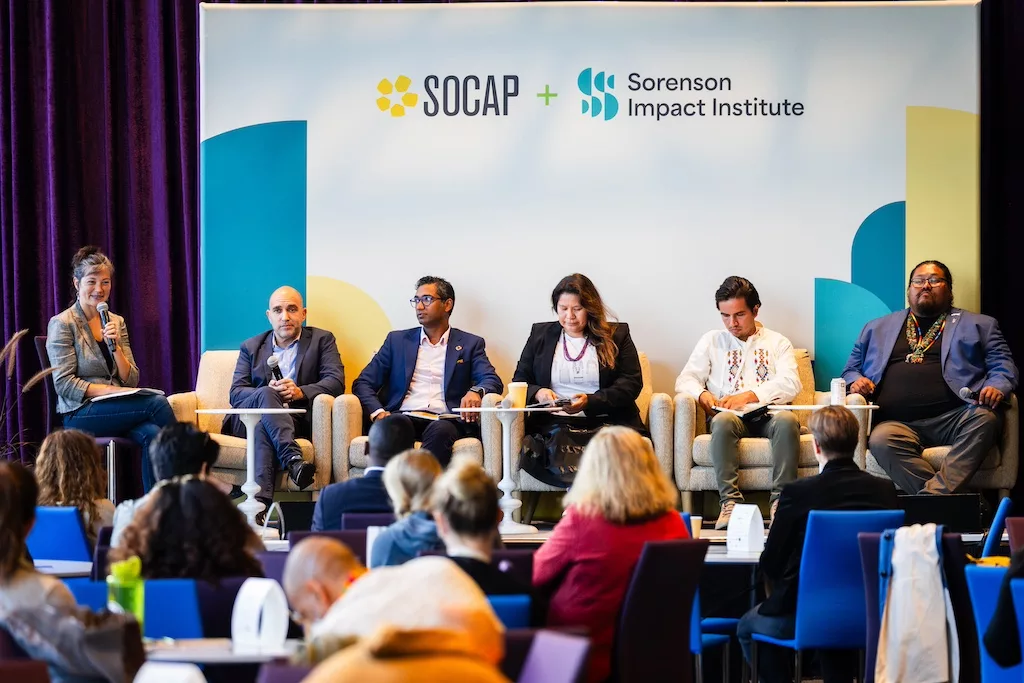
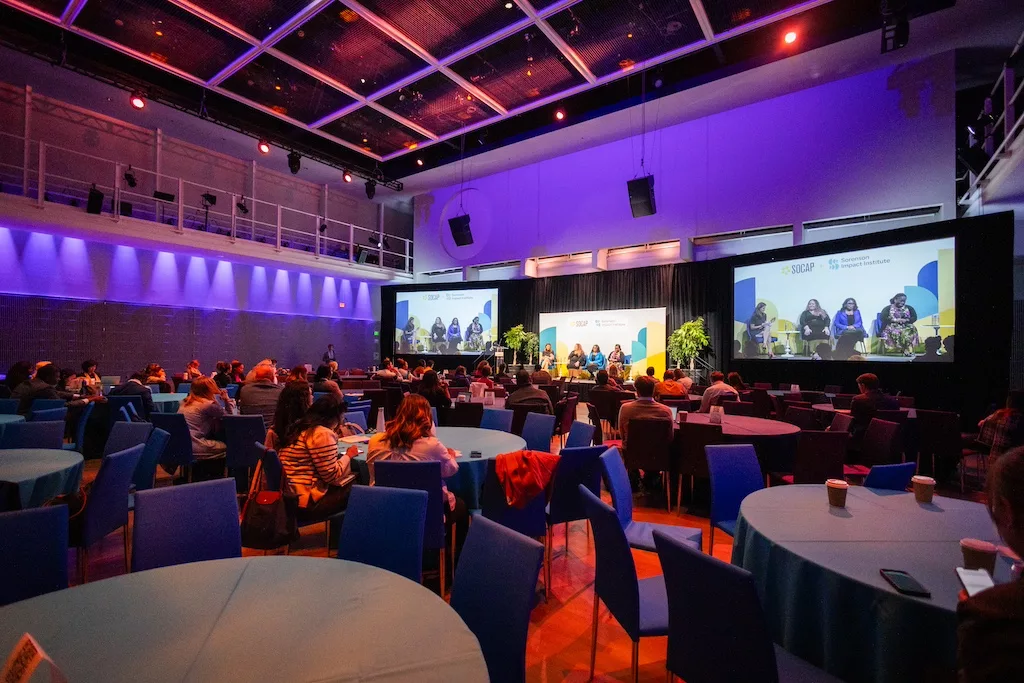
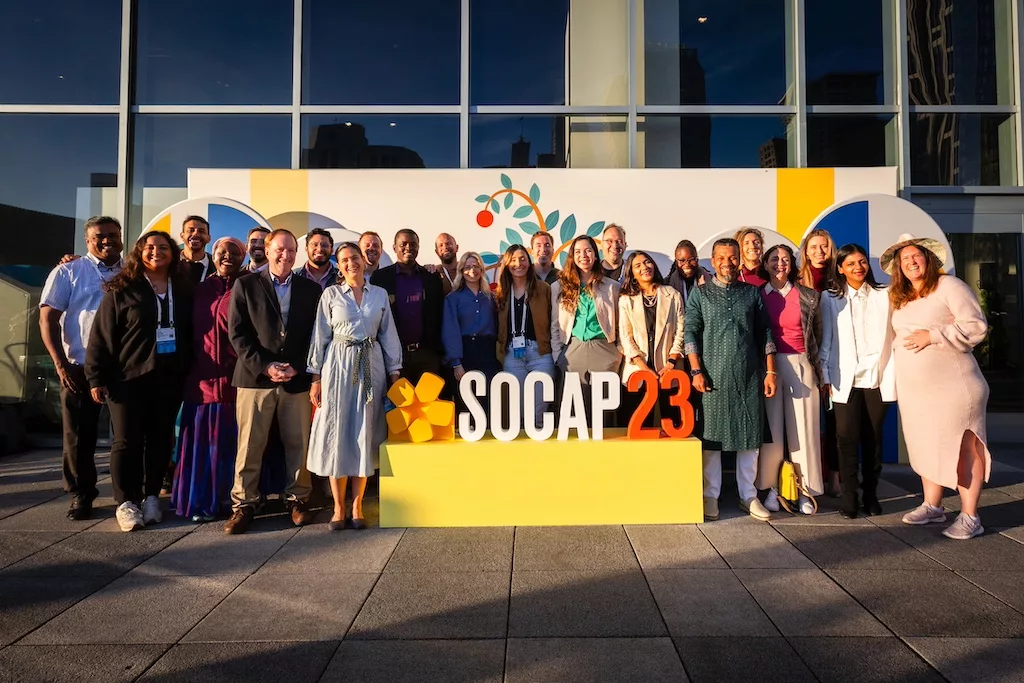
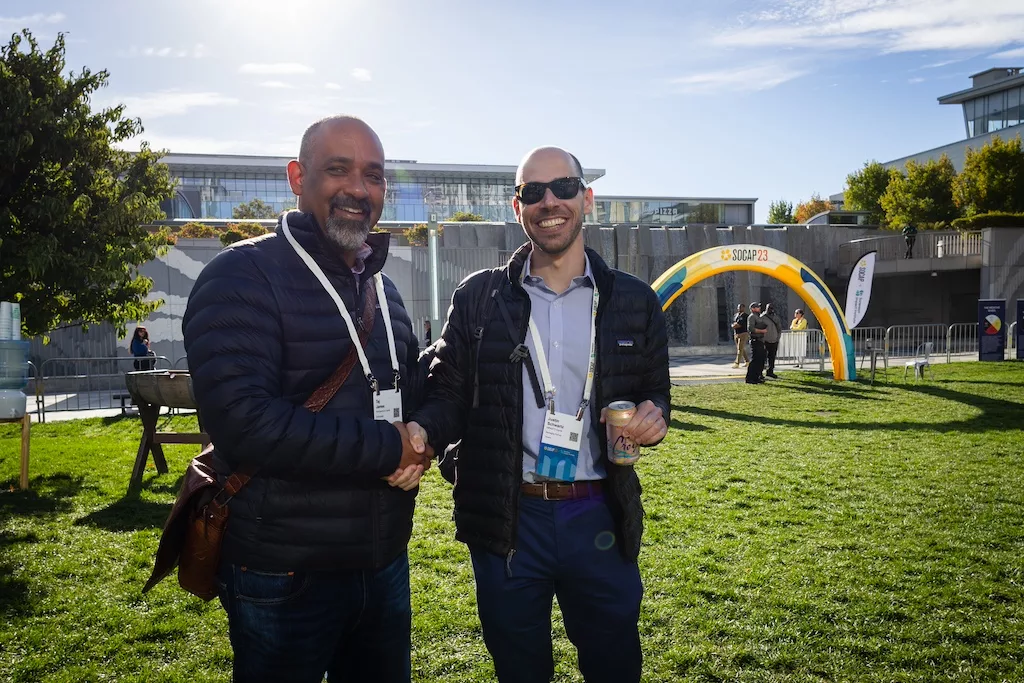
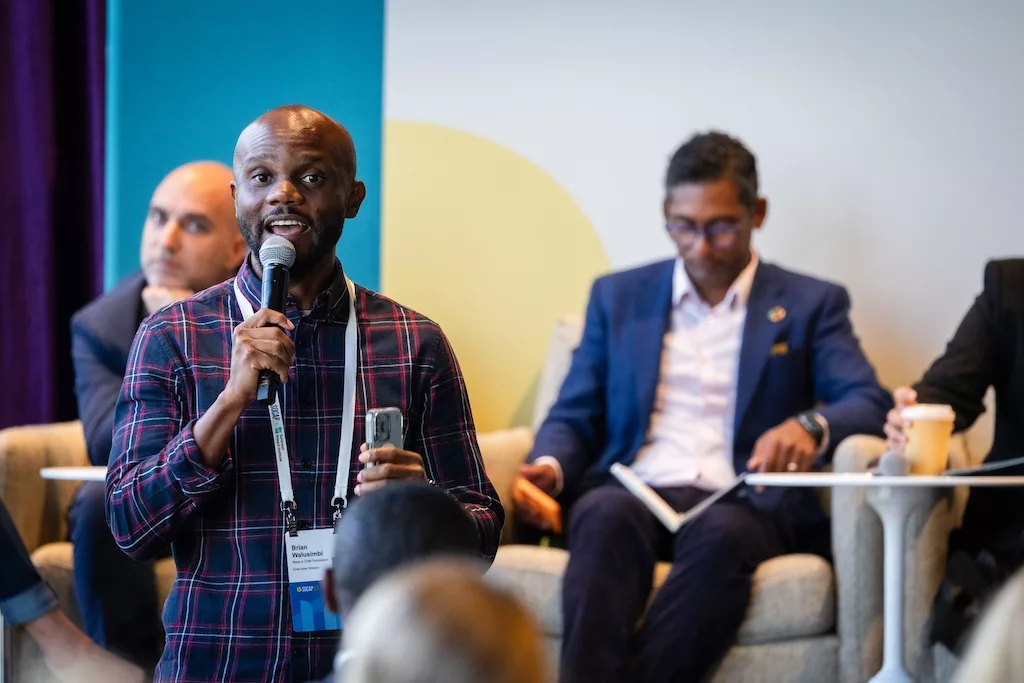
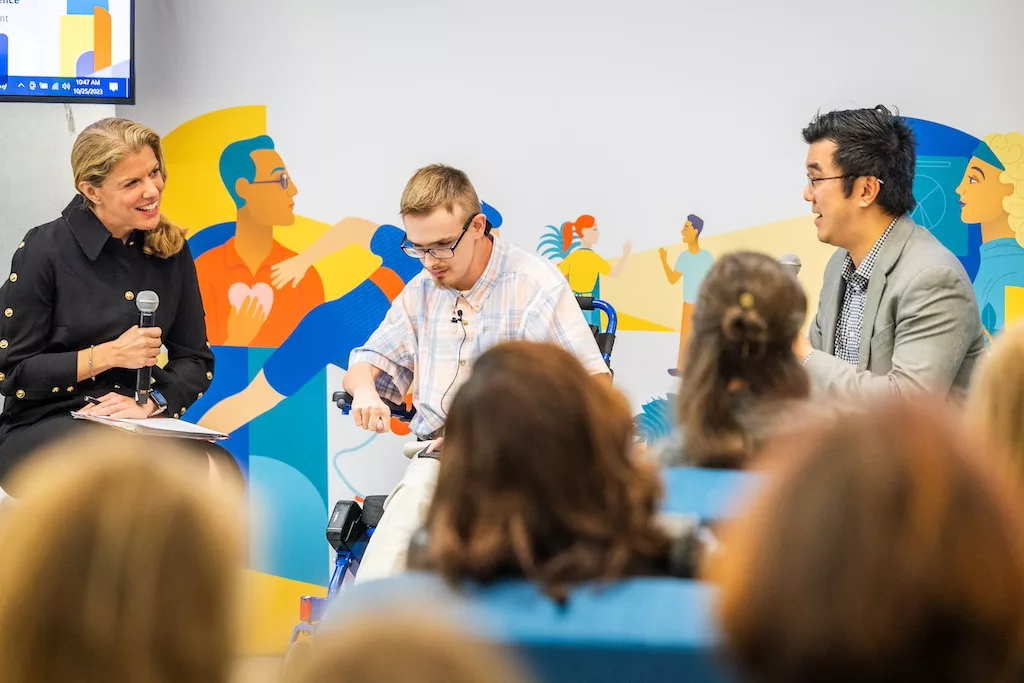
- “ it feels like capital is on the other side of the glass. What is needed is investors who want to step in with us in Indigenous communities to build the impact we want to create.” — Brett Isaac, Navajo Power, PBC
- “We look at the power of accommodations, and simple accommodations that employers are able to give, to help support more people in their careers. … It is necessary in order to build the most successful and productive workforce possible.” Sarah Bernard, Inclusively
- “We are all developing countries when it comes to LGBTQ rights.” Stefan Bollier, Dreilinden GmbH
- “It should be the pro forma expectation that we are building environments that are radically inclusive at work, at school, in the community, and that it’s going to involve technology.” Regina Kline, Enable Ventures
- “The criminal legal system was not built to serve people of color; it was built to oppress people. We’re trying to create companies that are disruptive. … If you’re creating a tech product actually to disrupt this system, you have to be willing to fight.” Jelani Anglin, Good Call Technologies
- “Community is part of the secret sauce of being successful. The beauty of the work we do is through partnerships with people who are local to their communities.” Jeremy Keele, Catalyst Opportunity Funds
Photos by Hardwig Media.
